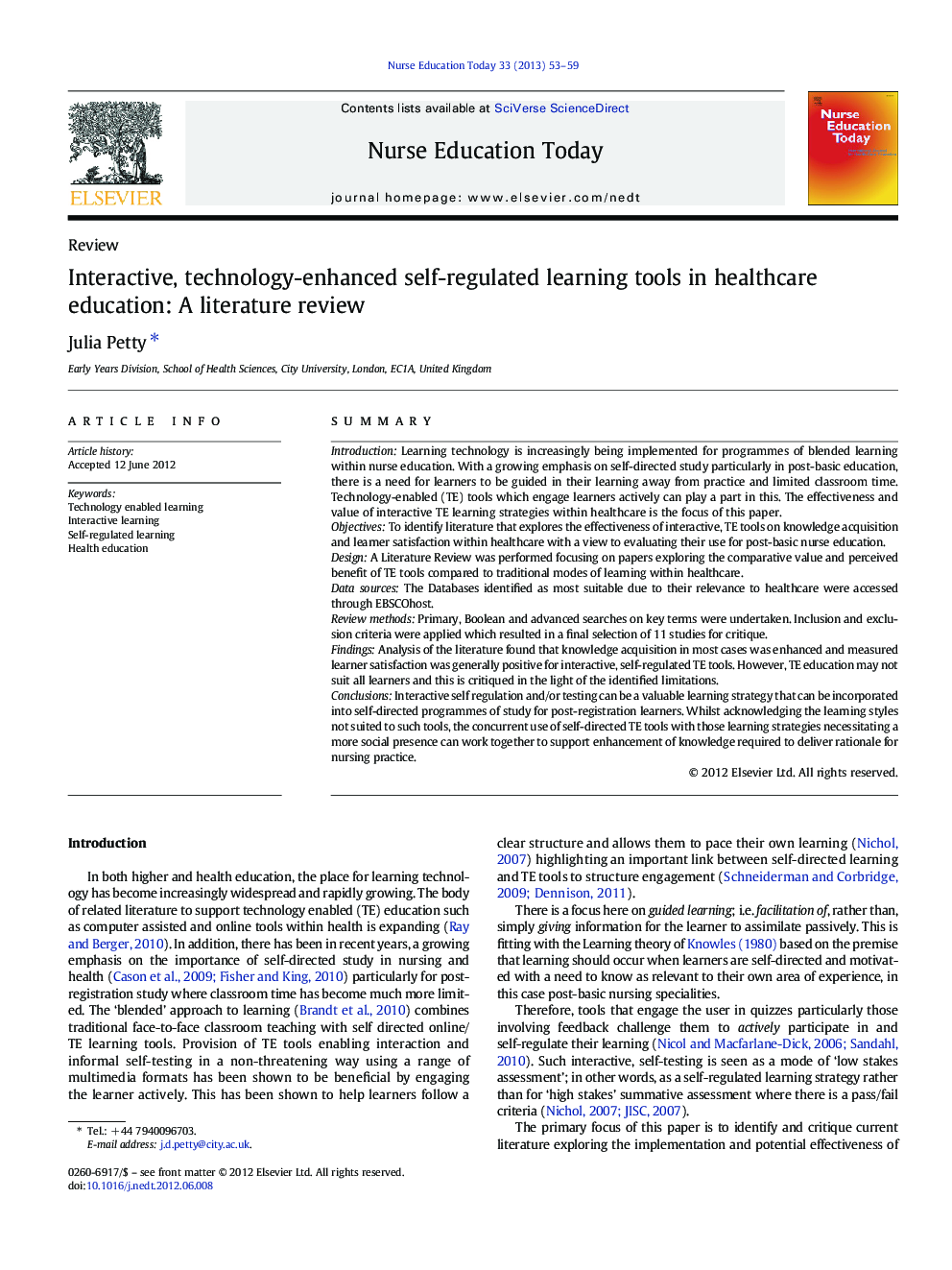| Article ID | Journal | Published Year | Pages | File Type |
|---|---|---|---|---|
| 368906 | Nurse Education Today | 2013 | 7 Pages |
SummaryIntroductionLearning technology is increasingly being implemented for programmes of blended learning within nurse education. With a growing emphasis on self-directed study particularly in post-basic education, there is a need for learners to be guided in their learning away from practice and limited classroom time. Technology-enabled (TE) tools which engage learners actively can play a part in this. The effectiveness and value of interactive TE learning strategies within healthcare is the focus of this paper.ObjectivesTo identify literature that explores the effectiveness of interactive, TE tools on knowledge acquisition and learner satisfaction within healthcare with a view to evaluating their use for post-basic nurse education.DesignA Literature Review was performed focusing on papers exploring the comparative value and perceived benefit of TE tools compared to traditional modes of learning within healthcare.Data sourcesThe Databases identified as most suitable due to their relevance to healthcare were accessed through EBSCOhost.Review methodsPrimary, Boolean and advanced searches on key terms were undertaken. Inclusion and exclusion criteria were applied which resulted in a final selection of 11 studies for critique.FindingsAnalysis of the literature found that knowledge acquisition in most cases was enhanced and measured learner satisfaction was generally positive for interactive, self-regulated TE tools. However, TE education may not suit all learners and this is critiqued in the light of the identified limitations.ConclusionsInteractive self regulation and/or testing can be a valuable learning strategy that can be incorporated into self-directed programmes of study for post-registration learners. Whilst acknowledging the learning styles not suited to such tools, the concurrent use of self-directed TE tools with those learning strategies necessitating a more social presence can work together to support enhancement of knowledge required to deliver rationale for nursing practice.
